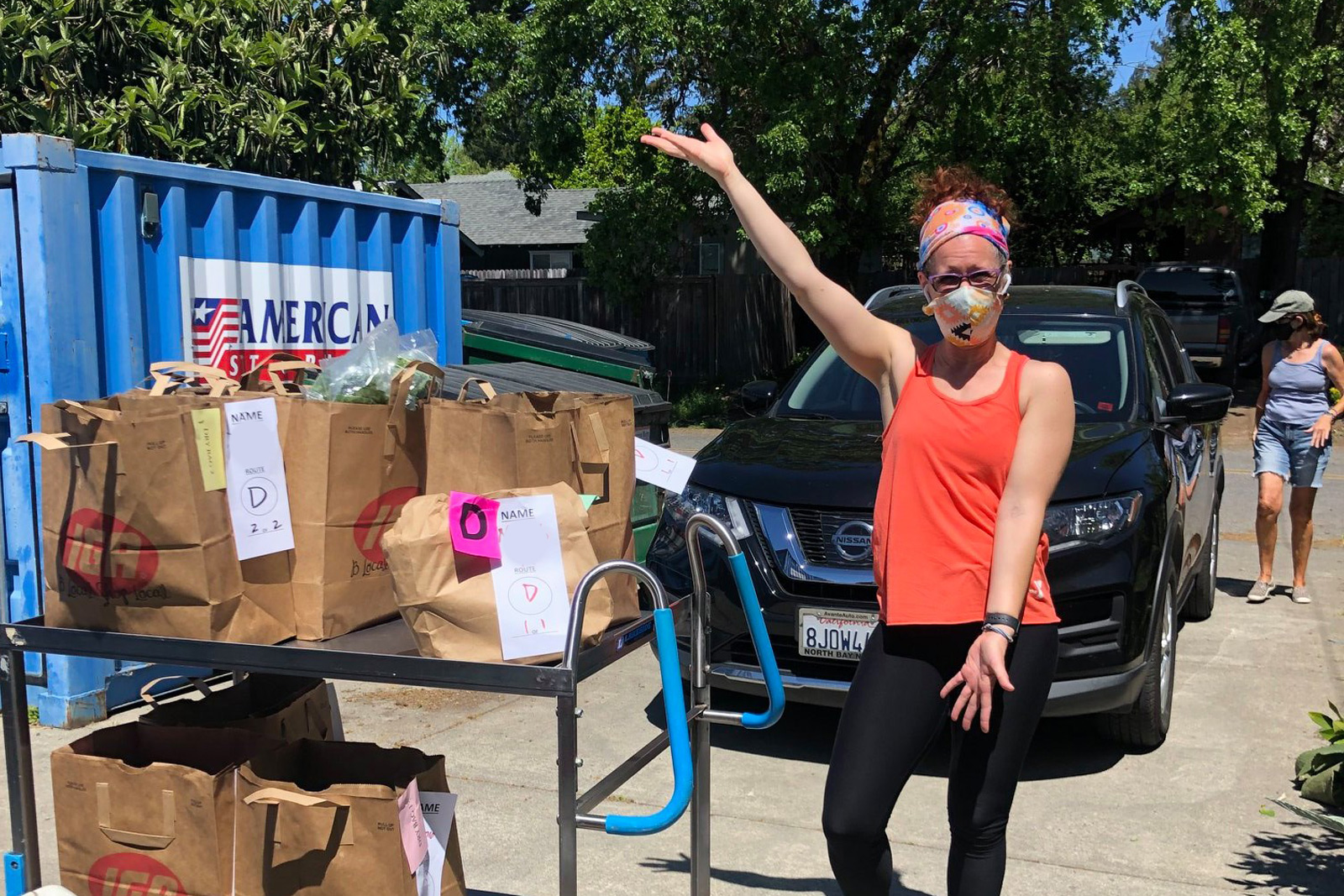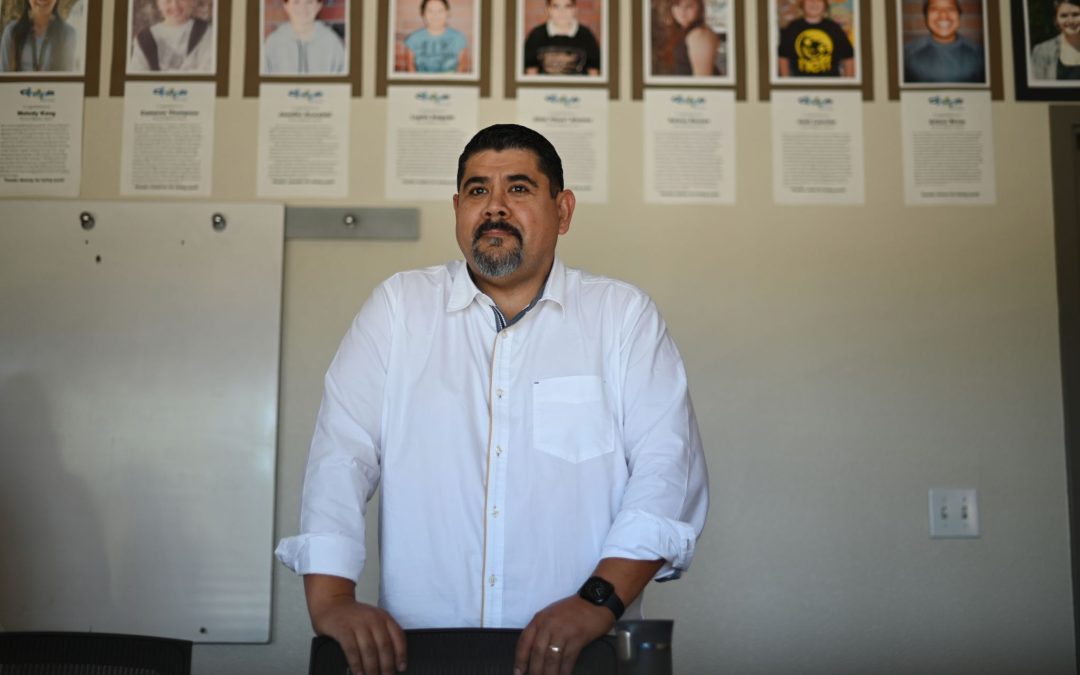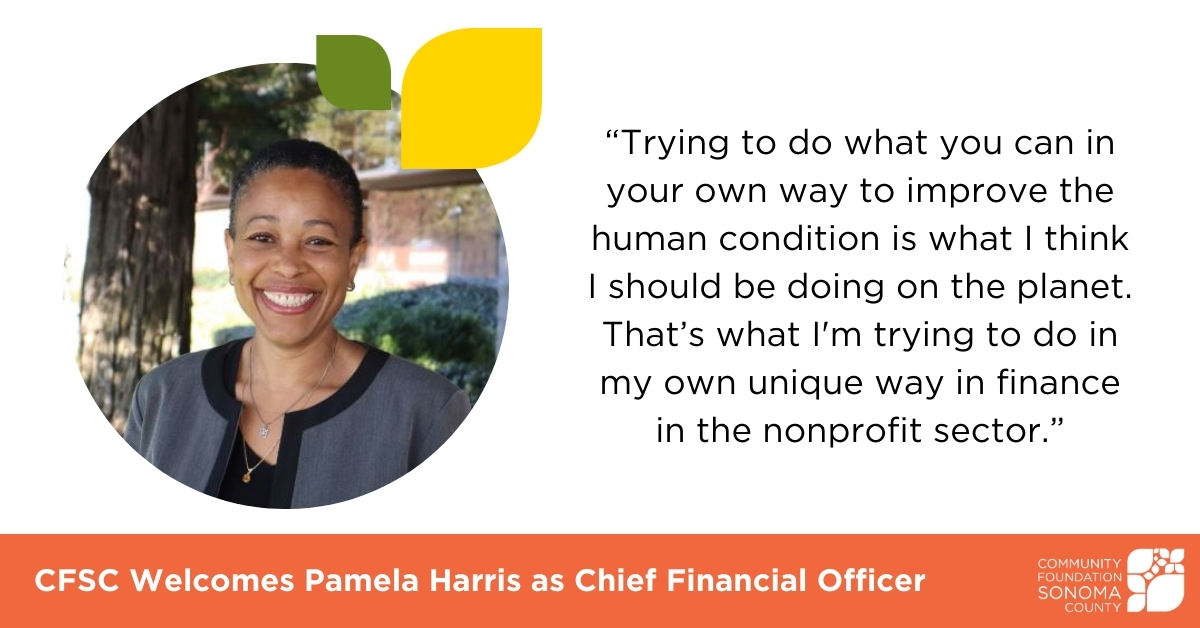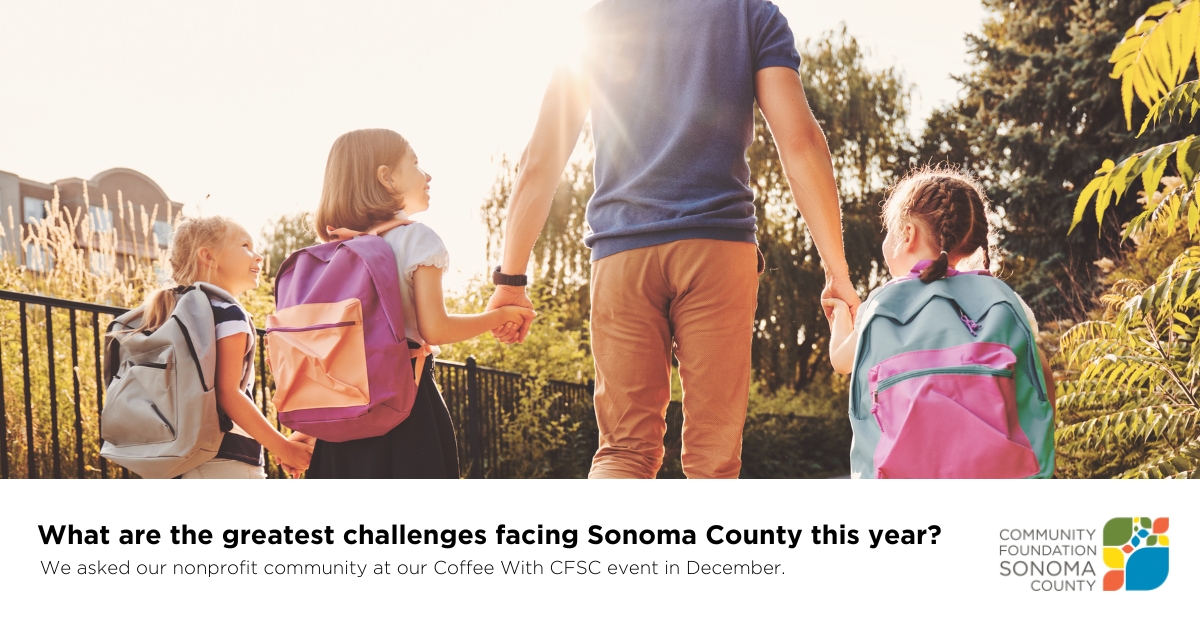The staff at Food For Thought in Forestville began implementing sanitation plans as soon as they got word of the pandemic in early March. But because the organization relies heavily on volunteers to help get food on the tables of those in need—and because the bulk of their volunteers are retired adults who were considered high risk in the early days of COVID-19—they soon found a nearly diminished number of people available to volunteer in their on-site food bank.
Food For Thought quickly hired food bank staff and worked out a schedule so existing staff could expand their duties to help package and distribute food.
“It feels almost like a ghost town without our regular volunteers,” says Food For Thought Executive Director Ron Karp. “It feels really different here.”
Yet despite the sparse presence of people on-site at their usually bustling Forestville office and food bank, Food For Thought is helping more people than ever.
Founded in 1988 in response to the AIDS crisis and focused primarily on feeding people affected by HIV/AIDS, Food For Thought later expanded services to include other at-risk populations. Their “Welcome Home” program supports people with congestive heart failure who are returning home from hospital stays. Another program for clients who can’t make it to Forestville because of health and transportation barriers, is “Bags of Love,” which provides groceries for clients at various locations around the county.
Food For Thought’s programs are unique in that they provide a combination of both prepared meals and groceries, whereas other organizations typically provide one or the other. They also medically tailor food for people with illnesses like diabetes and give people a choice of what foods they want in their grocery deliveries each week.
Supporting New Clients Diagnosed with COVID-19
Since shelter in place went into effect, Food For Thought has shifted the way they operate. They still serve clients food on-site, but have moved those services into the parking lot, where they adhere to strict physical distancing practices. Their home deliveries to clients have seen a big increase in numbers and many of their usual in-house volunteers have shifted to volunteering as delivery drivers, dropping off food for clients at their doorsteps.
“A lot of people who had decided they didn’t need food any more—a lot of our HIV clients—came back because they were really worried that they would get infected if they went to the grocery store,” says Karp. “They wanted to stay home.”
To maintain their connections to clients, staff at Food For Thought keep in touch with clients through weekly phone calls in English and Spanish; a service in great need as the county continues to report a disproportionate number of Latinx people testing positive for COVID-19.
In addition to the programs they already run, Karp says people who have tested positive for COVID-19 have been added to those they deliver food to.
That program started Karp got a call from the health department in May. They shared that a member of a multi-generational household with seven or eight family members had tested positive. His whole household was soon ill, as well. Because they were quarantined, they had no access to food or groceries.
“We didn’t have a particular program for that, but we decided to serve them. And we realized based on their story that this was going to be something that needed to be done,” says Karp. “So we created a COVID-19 program for people that have an infection and need to quarantine while they recover.”
The program serves the whole family for a duration of two months. Currently, Food For Thought has roughly 100 people with COVID-19 receiving food and Karp expects that number to rise, as the county opens up and numbers of infected residents increase.
“We were doing the equivalent of about 5,000 meals per week in the beginning of March, and now we’re at 9,000,” says Karp. “We expect the COVID program to double in the next few weeks, and we’ll probably be about 10,000.”
The higher number of meals needed comes at a time that Food For Thought looks at an estimated loss of $500,000 in revenue from their $2.5 million budget. Because of social distancing, they are unable to host their annual fundraisers and food drives in front of local grocery stores. Their annual dinner in August will now be a 30 minute Zoom gathering.
“We’re not going to raise anywhere near the money,” says Karp.
They also don’t currently have a funding stream specifically for their COVID-19 program. Yet, the quick funding from Community Foundation Sonoma County came when they weren’t sure what the months ahead would look like. The funding, says Karp, has helped keep them on their feet.
“This is a long-term, heavy duty challenge to figure out how to remain engaged with our donors and volunteers; it’s just exactly like it is with individuals and families and not being able to visit people and see them and touch them,” says Karp. “Its part of the pandemic, but it really applies to nonprofits in a really different way. The Community Foundation grants certainly helped.”
Story by Dani Burlison











